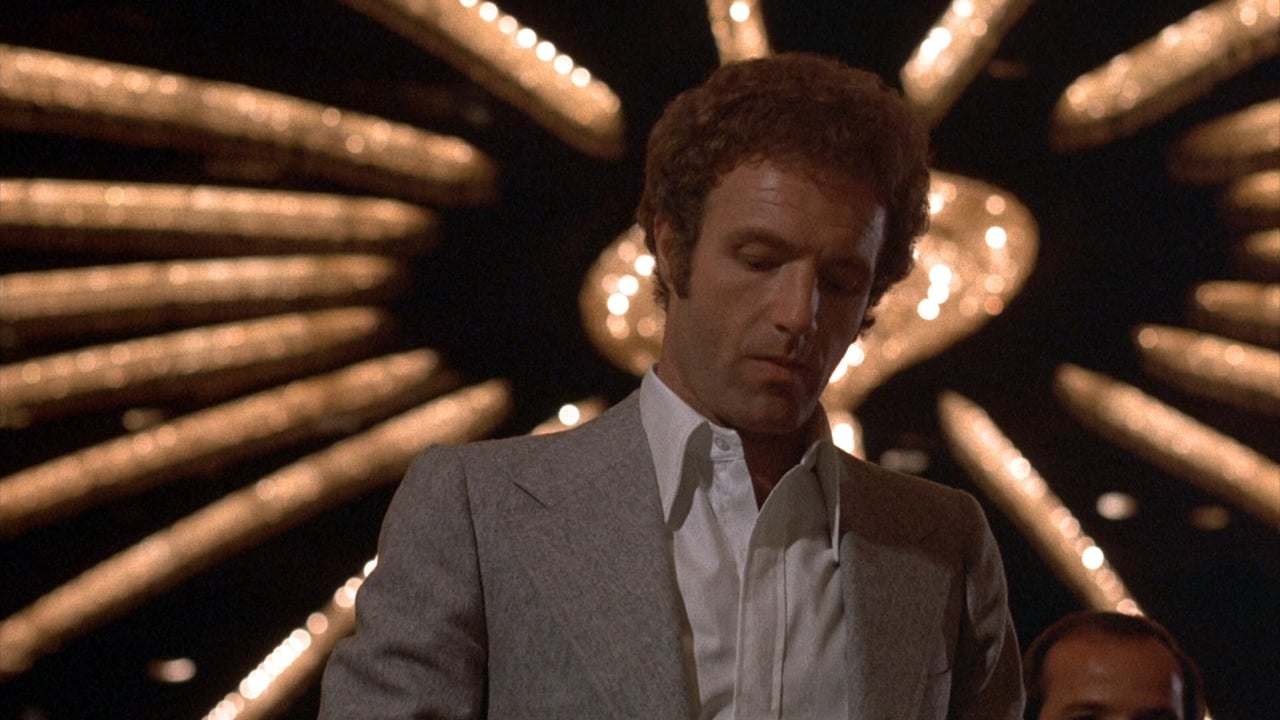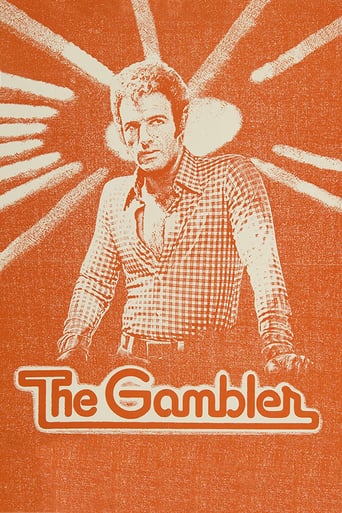

Strictly average movie
... View MoreAwesome Movie
... View Moreif their story seems completely bonkers, almost like a feverish work of fiction, you ain't heard nothing yet.
... View MoreThe movie is made so realistic it has a lot of that WoW feeling at the right moments and never tooo over the top. the suspense is done so well and the emotion is felt. Very well put together with the music and all.
... View MoreCollege literature professor Axel Freed (superbly played with bracing intensity by James Caan) can't control his ever-worsening gambling habit despite the fact that he owes $44,000 dollars to some local mobsters.Director Karel Reisz relates the riveting story at a steady pace and maintains an unsparingly bleak tone that becomes more increasingly dark and despairing in its unflinching depiction of Axel's downward spiral into total corruption and moral erosion that's wrought by his ruthless using (and eventual losing) of everyone around him as a means of keeping himself out of the hole he has dug for himself. James Toback's grimly compelling script astutely captures the self-destructive nature of compulsive gambling with no possibility of redemption and a startling bummer ending which packs a super harsh punch.Caan does an expert job of portraying a man who only feels most alive when he's teetering on the edge of the abyss. Moreover, there are excellent supporting contributions from Paul Sorvino as concerned bookie Hips, Lauren Hutton as fed-up long-suffering girlfriend Billie, Jacqueline Brookes as Axel's disgusted mother Naomi, Morris Carnovsky as Axel's wise and wealthy grandfather A.R. Lowenthal, Burt Young as amiable, yet brutish collector Carmine, Vic Tayback as fearsome capo One, and Steven Keats as pathetic junkie Howie. Popping up in nifty bits are James Woods as an uncooperative jerk of a bank officer, Antonio Fargas as a vicious pimp, M.Emmet Walsh as a jolly gambler, and Stuart Margolin as a loudmouth cowboy. Victor J. Kemper's shadowy cinematography provides a gritty noir look. A potent and gripping knockout.
... View MoreJames Caan is Axel Freed, a gambling addict hell-bent on self-destruction in the gritty 1974 crime drama "The Gambler".A college literature professor by day, Axel wages a vicious war with himself off campus during his off hours, shattering the limits of both underground and legit wagers. Axel knows full well that the odds against him are recklessly daunting. Dangerously so. Nevertheless, we come to learn that this is a deeply troubled soul, and a guy who has long since succumbed to a ceaseless struggle to quench an insatiable thirst for "the juice" which betting has insidiously inflicted.James Caan is the man. "The Gambler" is one among a string of classic movies the iconic actor starred in during the '70's ranging from "Brian's Song" to the first two installments of the "The Godfather" saga. Caan's portrayal of Axel is a searingly wrenching performance. He gives us a confoundingly complicated man, one blessed with abundant intelligence and charm yet powerless to break free from the vise grip his all consuming vice has on his rapidly unraveling life.The supporting cast is stellar. Paul Sorvino is perfection as an illegal gambling boss who reveals that he has at least a semblance of a heart. Lauren Hutton is underdeveloped as Axel's conflicted girlfriend, though she does have a compelling scene in a Vegas hotel room toward the end of the film that emotionally foreshadows the grim fate destined to befall her beau. Jacqueline Brookes makes her own indelible impression as Axel's heartbroken and exploited mother. And Burt Young impresses during his brief but explosive appearance as a wise guy enforcer only a couple of years shy of his career blasting off with the continuing role of Paulie in the first of the "Rocky" films franchise.While Caan is exceptional here, I would liked to have seen a more detailed exploration into why his character of Axel behaves the way that he does. Much is intimated, but little is actually disclosed. His conduct and choices, while for the most part abominable, are as fascinating as they are baffling. But what drives the seemingly insane behavior of this fellow who clearly has an exceptional capacity to think, interpret and express at such a high level? Czechoslovakian Director Karel Reisz ("The French Lieutenant's Woman", "Sweet Dreams" but not a lot else, actually) leaves it largely to our own conjecture to determine why in the hell Axel insists on barreling completely out of control down a one-way highway to oblivion. And the resultant aftertaste is not nearly as palatable as it could have been.The final image of "The Gambler" is a grotesquely grim one to be sure. Yet we get the unsettling feeling that Axel was never going to be genuinely "satisfied" until it got to this horrifically ugly point. And I suppose that after all this is the enduring point that Reisz is making with this sordidly squalid story. It was just such a murky journey he took us on to reach this cacophonous climax."The Gambler" didn't hit the jackpot for me, so I'm gonna "roll 6" for this one based off of Caan's enigmatic yet engrossing performance and for the wonderful work of the superb supporting cast.
... View MoreMuch criticism and disappointment has been expressed over the new remake of this movie that was released over Christmas. Having seen this version over the remake already in theaters, I understand where the disappointment is coming from. Why on earth would you even dare to remake a film as incredible as this? This original version with James Caan went largely ignored when released, but it stands to me as one of the greatest films to ever come out of the 70's. It has that gritty, NYC, 70's feel that made films like Mean Streets and Serpico so great. The performances are masterful. You can't go wrong with James Caan, or Paul Sorvino either. I HIGHLY recommend, you see this one first before you even think about seeing, what is probably, a useless remake of this classic.
... View MoreA gritty, realistic film about addiction, it has a bit of haunting atmosphere to it, and although awfully dreary and a touch too harrowing for its own good, the film still packs a punch. Caan has a very interesting character, one who understands his own addiction yet still deceives himself, and he gives off a very solid performance, even though his character does come off rather cold and a bit hard to relate to. What the film shows us and what happens is quite predictable, but that does not prevent it from still having potency, and the ending certainly is not predictable, and is actually rather fascinating. The film's music score fits the project perfectly, and the driving sequences depict the character's feelings very well. Certainly this worth checking out, even if it is no cinema masterpiece.
... View More